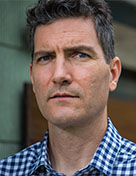Greg Sharp, The State University of New York at Buffalo
| When |
Feb 26, 2018
from 12:00 PM to 01:00 PM |
|---|---|
| Where | 1101 Morrill Hall |
| Contact Name | Jennifer Doiron |
| Contact Phone | 301-405-6403 |
| Add event to calendar |
|
Co-Sponsor - Department of Criminology and Criminal Justice
About the Presentation
A growing body of research suggests that, in addition to the residential neighborhood, individuals’ activity spaces—the contexts to which people are routinely exposed—shape health and well-being. Given that people spend varying amounts of time in their residential and activity space contexts throughout the day and over a number of years, more empirical work is needed on the uneven impacts of contextual exposures on health. While theoretically implicated in studies of context and health, the mechanisms that link activity spaces and adult health have also been an understudied topic. Using novel longitudinal data from the Los Angeles Family and Neighborhood Survey, this study examines the relationship between contextual exposures and self-rated health. Results show that changes in adults’ connections to their residential and non-residential neighborhoods change the probability of reporting worse health in different ways, as well as mediate and moderate the effects of contextual exposures on self-rated health.
About the Speaker

Gregory Sharp is an Assistant Professor in the Department of Sociology at The State University of New York at Buffalo. He received his Ph.D. in Sociology and Demography from Pennsylvania State University in 2013, and completed a two-year Postdoctoral Fellowship at Rice University before joining the faculty at SUNY-Buffalo. His research is largely concerned with uncovering how and why neighborhoods shape the lives of individuals and their families. In pursuit of this broader interest, his work contributes to scholarship in the areas of neighborhoods and health, urban and community sociology, and social stratification. To date, his work has appeared in various interdisciplinary journals, including Social Science & Medicine, Social Problems, Demography, Health & Place, City & Community, and Rural Sociology.
